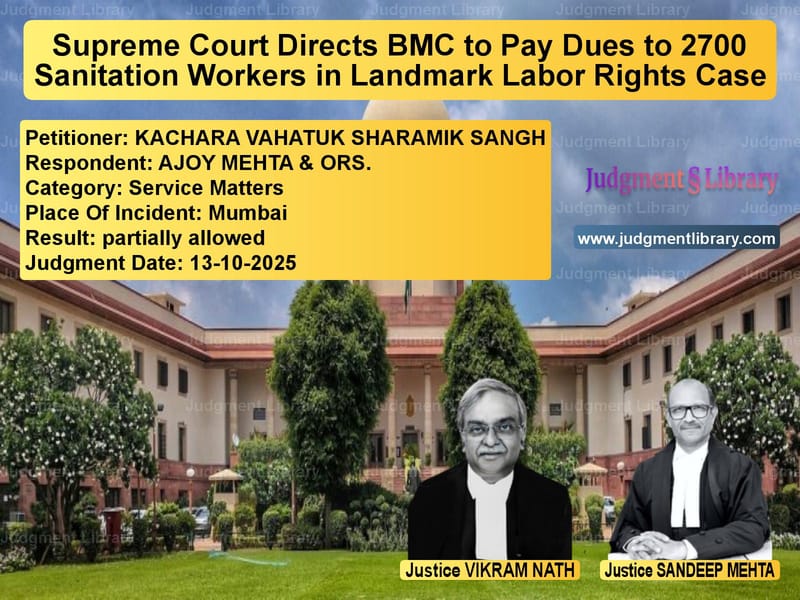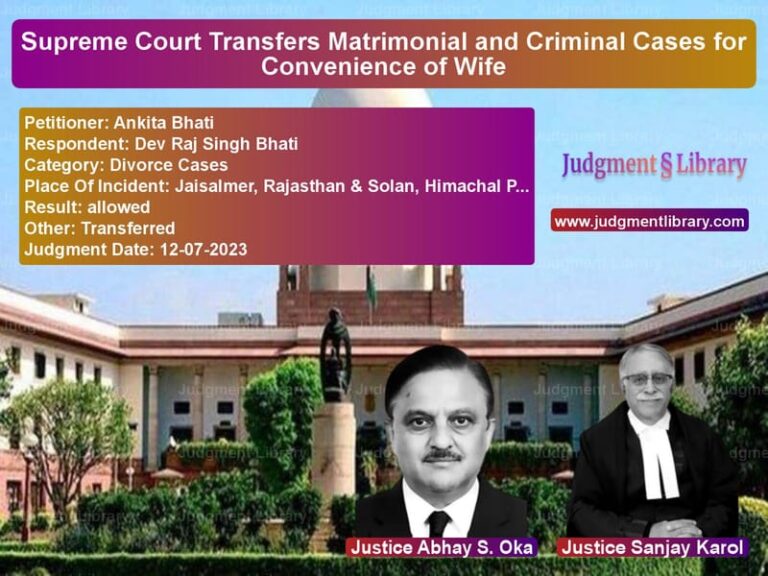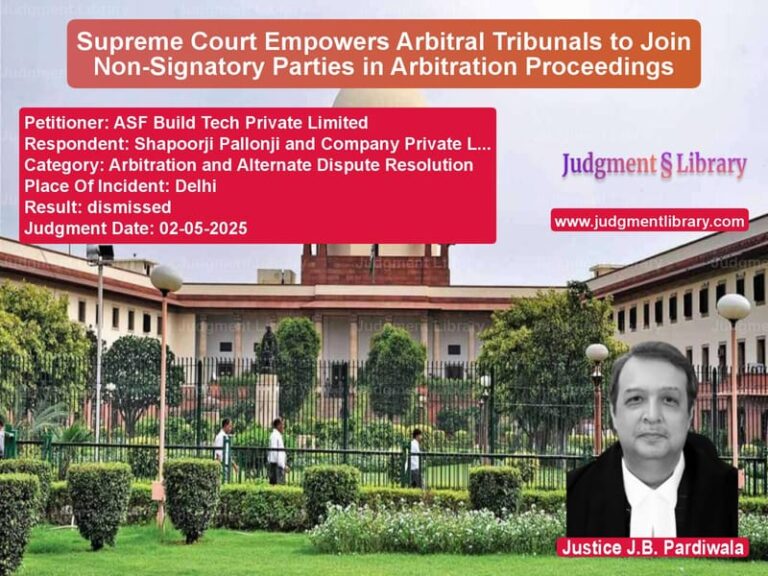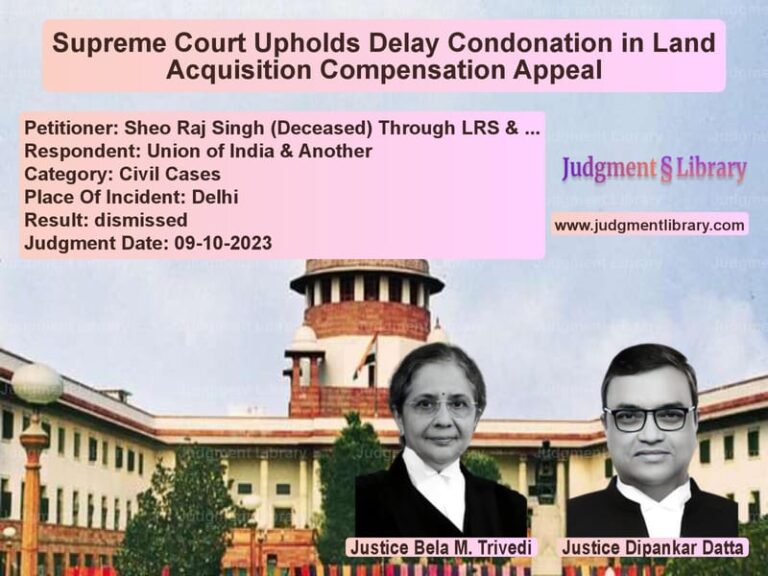Supreme Court Directs BMC to Pay Dues to 2700 Sanitation Workers in Landmark Labor Rights Case
In a significant development for labor rights in India, the Supreme Court has issued detailed directions to the Brihanmumbai Municipal Corporation (BMC) to ensure complete payment of dues to approximately 2700 sanitation workers who were denied their rightful permanent status and benefits for years. The case, which has been winding through the judicial system since 2018, represents a classic struggle between municipal workers fighting for their legitimate rights and a corporation accused of dragging its feet in implementing court orders.
The origins of this legal battle trace back to 2014 when the Industrial Tribunal in Mumbai first recognized the rights of these sanitation workers, directing the BMC to treat them as permanent employees with retrospective benefits. This order was subsequently confirmed by the Bombay High Court in 2016, and while the Supreme Court modified certain aspects of the relief in 2017, it substantially upheld the workers’ entitlement to permanent status and accompanying benefits.
The core dispute centered around the implementation of these judicial directives, with the workers’ union alleging persistent non-compliance by the municipal corporation, leading to the filing of contempt proceedings in 2018. What followed was a seven-year journey through the Supreme Court’s corridors, with multiple hearings and repeated extensions granted to the BMC to comply with its obligations.
The Original Supreme Court Judgment of 2017
The foundational judgment delivered on April 7, 2017, by the Supreme Court laid down the framework for resolving this long-standing dispute. The Court made several crucial modifications to the Industrial Tribunal’s award while substantially agreeing with the relief granted to the workers.
The Court’s reasoning was captured in several key paragraphs that would become the bedrock of subsequent proceedings. “In our opinion and in the facts and circumstances as posts are required to be created, it would be appropriate to grant monetary relief w.e.f. the date of Award i.e. 13.10.2014. Actual monetary benefit to be given from the date of the Award to the employees who are still serving.”
However, the Court showed particular consideration for workers in vulnerable situations, noting that “the permanent status as a special case be conferred to those employees who had died in service or permanently incapacitated till today w.e.f. the date as ordered by the Industrial Tribunal. Let relief be given as agreed.”
The verification process revealed significant discrepancies, with the Court recording that “verification process had been undertaken pursuant to the interim order passed by the High Court. It was found that only 1600 employees were actually available. With respect to remaining workers verification could not be made.” To address this, the Court directed that “with respect to remaining employees whose verification could not be made earlier, fresh exercise shall be undertaken. Verification process shall be undertaken with the help of Corporation and Union by the Industrial Investigating Officer of the Industrial Court within a period of six months from today and in case any of the employees is verified, he shall also be entitled to the relief in terms of the order which has been passed by us.”
Read also: https://judgmentlibrary.com/supreme-court-resolves-telangana-judicial-service-recruitment-dispute/
The Contempt Proceedings and Persistent Non-Compliance
Despite the clear directives from the Supreme Court, the implementation remained patchy, leading to the filing of contempt petitions. The situation reached a point where the Court had to take serious note of the corporation’s failure to comply. As noted in the judgment, “when compliance was not effected despite repeated orders being passed granting time to the Brihammumbai Municipal Corporation (for short, ‘the BMC’), this Court, vide order dated 05.03.2024 found that there was substantial non-compliance of the judgment of this Court dated 07.04.2017, and accordingly directed the personal appearance of the Municipal Commissioner, the Deputy Commissioner (SWM), and the Chief Engineer (SWM).”
The personal appearance of senior BMC officials marked a turning point in the case, signaling the Court’s growing impatience with the delays in implementation. While the Municipal Commissioner’s appearance was eventually exempted, the continued presence of other senior officers ensured that the corporation remained accountable to the Court.
The Workers’ Grievances
The petitioner union, representing the sanitation workers, submitted a detailed note outlining several persistent issues that needed resolution. Their concerns highlighted systemic problems in the implementation process.
Regarding wage fixation, they argued that “The Petitioner has noticed from the break-up charts furnished by the Corporation, as also from workers’ pay slips that in numerous instances workers’ basic wages have been fixed in disregard of their initial dates of appointment (i.e., in 2005-2006). This incorrect fixation of the workers’ pay adversely impacts a range of their entitlements total arrears admissible, seniority, promotions and all consequential retiral benefits.”
On the issue of discrepancies in attendance records, the union pointed out that “in a large number of cases, it was found that though the attendance for several months was continuously shown to be ‘ZERO’ – and as a result nothing admissible for these periods upon verifying with the bank account statements of individual workers, it was found that they had been paid minimum wages for the work rendered by them during such periods.”
Perhaps most concerning was the issue of recovery notices, where the union noted that “for the first time in December 2024 / January 2025, more than 859 workers from the batch of approximately 1600 workers, have been issued notices from the Respondent Corporation claiming that excess amounts were paid to them earlier and that, therefore, such amounts are now recoverable.”
The delayed payment of gratuity emerged as another significant concern, with the union emphasizing that “Section 7 (3A) of the Payment of Gratuity Act, 1972 unequivocally stipulates that in the event that gratuity is not paid within 30 days of death / retirement, an employer is liable to pay interest thereon from the date on which it becomes payable till the date of payment.”
Most startling was the revelation about provident fund dues, where the union highlighted that “an amount of Rs. 228,07,21,559/- is not transferred in the accounts of the workers concerned herein (as also several others) and directed that the Respondent Corporation deposit such amount.”
The BMC’s Response
The municipal corporation, in its response, acknowledged some issues while defending its position on others. On the appointment of an auditor, they stated that “the concerned officer has been asked to provide a progress report and will schedule a joint meeting with the Petitioner Union at the earliest to discuss the modalities of their participation and representation, and to provide a timeline for the completion of the audit. The Respondent Corporation is committed to a transparent and speedy resolution of the present matter.”
Regarding wage fixation, the corporation maintained that “the fixation is done considering their initial appointment and notional fixation has been given till 13.10.2014 and in accordance with the relevant notification and circulars of the Corporation. Considering their attendance further fixation has also been considered.”
On the recovery notices, the BMC cited the Court’s earlier order, noting that “this Hon’ble Court has already considered the said situation and has passed an order dated 27.09.2024, the relevant portion of the said order is as follows: ‘However, we are of the view that in case any excess amount has been paid by the Corporation, the Corporation will have a right to recover it but only after routing it through the petitioner-Association and in a reasonable manner on month to month basis from the salary of the employees.'”
Regarding gratuity payments, the corporation explained the delays by citing several challenges: “Minimum Qualifying Service Requirement: Gratuity under the Act requires a minimum of five years of qualifying service. Determining the qualifying service was essential service period accurately is essential before any payment can be made… Attendance-Based Calculation: Gratuity computation depends on verified attendance records from the date of appointment until superannuation or death of the concerned employee… Delayed Submission of Documents by Workers or their Legal Heirs: In several cases, the employees or their legal heirs have submitted the required documents after a long delay further delaying the verification and calculation process… Loans availed by the Workers: In several cases, the employees have taken huge amounts of loans from Municipal Co-operative Bank and the said amounts are required to be adjusted towards their pension and gratuity claims.”
The Supreme Court’s Final Directions
After considering both sides’ submissions, the Supreme Court, through Justices Vikram Nath and Sandeep Mehta, issued comprehensive directions to resolve the lingering issues. The Court formally appointed Mr. Shrikant Kamble, the retired Deputy Auditor, to oversee the calculations, directing that “Mr. Kamble (in short referred to as the ‘Auditor’) be entrusted with the job of making the necessary calculations as required with respect to each of the employees currently working, after making due verification from the records and the material which may be placed before him and to submit his report to the corporation with a copy marked to the petitioner union.”
The Court further directed that “The BMC shall proceed to comply with the calculation as may be determined by the Auditor and to ensure payment of the outstanding dues, if any, to each of the employees. The amount quantified shall be paid within a period of 4 weeks from the date of submissions of his reports.”
On the scope of the auditor’s work, the Court specified that “The scope of enquiry to be conducted by the Auditor, apart from making the calculations with respect to the emoluments admissible to each of the employees currently working would also include the following. He will also examine statements of the workers’ pay with due regard to the pay slips and other benefits, as extended to their counterpart permanent workers on a similar basis. He shall further take into consideration wage agreements, circulars, notifications etc. issued by the BMC from time to time for determining the wages and other service conditions of identically situated permanent workers.”
Regarding attendance records and break-up charts, the Court ordered that “The Auditor shall further be provided with all attendance records of the workmen by the BMC. Thereafter, the Auditor, after providing due opportunity to the employees to furnish their bank account statements, passbooks, or any other documents, to prove that they have worked during any period for which attendance is either shown to be zero or is not available, shall proceed with the assessment. The Auditor shall thereafter prepare detailed break-up charts providing monthly overview of amounts payable.”
On the contentious issue of recoveries, the Court provided a balanced approach, stating that “After providing an opportunity of hearing to the concerned employees against whom notices have been issued, the Auditor shall consider as to whether such recovery can be effected or not, and whether any excess amount has actually been paid.”
Regarding gratuity payments, the Court acknowledged the workers’ entitlement to statutory interest, noting that “the employees are entitled to statutory interest as per section 7(3A) of the Payment of Gratuity Act, 1972, from the date it is admissible until the date the full amount is actually paid as per the statutory provisions.”
On the provident fund issue, which involved approximately Rs. 228 crores, the Court declined to intervene in the pending High Court matter, observing that “We are afraid that no such order needs to be passed as the High Court itself would be competent to decide as to whether the impleadment of the petitioner is necessary or not. Since the impleadment application is still pending consideration, we do not wish to in any way influence the said proceedings. The High Court would take an appropriate call on the merits of the application.”
Conclusion
This judgment represents a significant victory for the sanitation workers of Mumbai, who have fought for years to receive their legitimate dues. The Supreme Court’s detailed directions create a clear roadmap for resolving the remaining issues, particularly through the appointment of an independent auditor to verify calculations and ensure proper payment.
The case highlights the challenges faced by workers in the informal sector and the importance of judicial intervention in protecting labor rights. While the BMC raised legitimate administrative challenges in implementing the court’s orders, the persistent efforts of the workers’ union, supported by the Supreme Court’s oversight, have finally brought them closer to receiving justice.
The Court’s balanced approach—recognizing the corporation’s practical difficulties while firmly upholding the workers’ rights—sets an important precedent for similar cases across the country. As the implementation of these directions unfolds, it will serve as a test case for how effectively judicial mandates can be translated into tangible benefits for workers who have long been denied their rightful dues.
The Supreme Court wisely kept the door open for future interventions, noting that “We leave it open to the parties to approach this Court again as and when further clarification or modification or directions are required,” ensuring that the workers’ interests remain protected throughout the implementation process.
Petitioner Name: KACHARA VAHATUK SHARAMIK SANGH.Respondent Name: AJOY MEHTA & ORS..Judgment By: Justice VIKRAM NATH, Justice SANDEEP MEHTA.Place Of Incident: Mumbai.Judgment Date: 13-10-2025.Result: partially allowed.
Don’t miss out on the full details! Download the complete judgment in PDF format below and gain valuable insights instantly!
Download Judgment: kachara-vahatuk-shar-vs-ajoy-mehta-&-ors.-supreme-court-of-india-judgment-dated-13-10-2025.pdf
Directly Download Judgment: Directly download this Judgment
See all petitions in Employment Disputes
See all petitions in Pension and Gratuity
See all petitions in Contractual Employment
See all petitions in Public Sector Employees
See all petitions in Contempt Of Court cases
See all petitions in Judgment by Vikram Nath
See all petitions in Judgment by Sandeep Mehta
See all petitions in partially allowed
See all petitions in supreme court of India judgments October 2025
See all petitions in 2025 judgments
See all posts in Service Matters Category
See all allowed petitions in Service Matters Category
See all Dismissed petitions in Service Matters Category
See all partially allowed petitions in Service Matters Category







